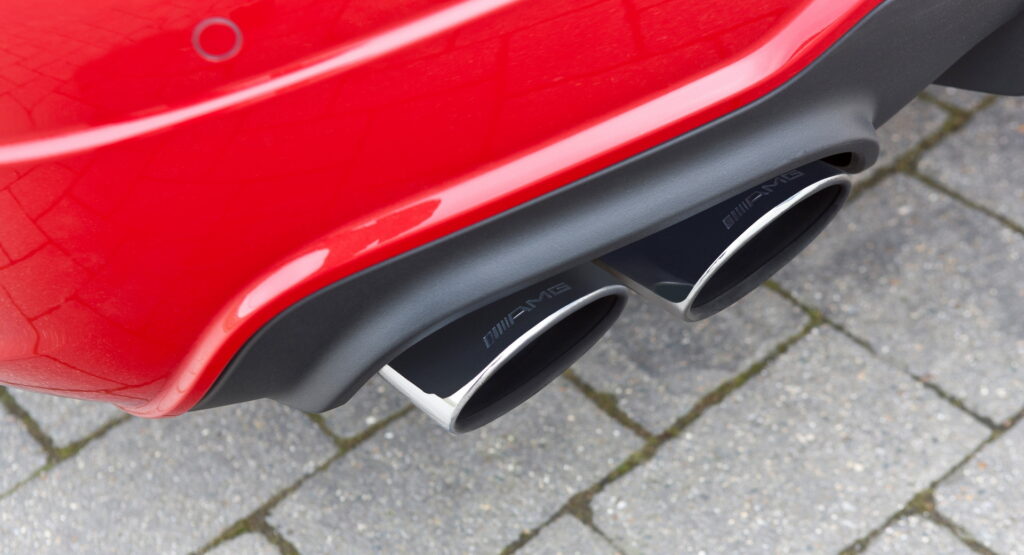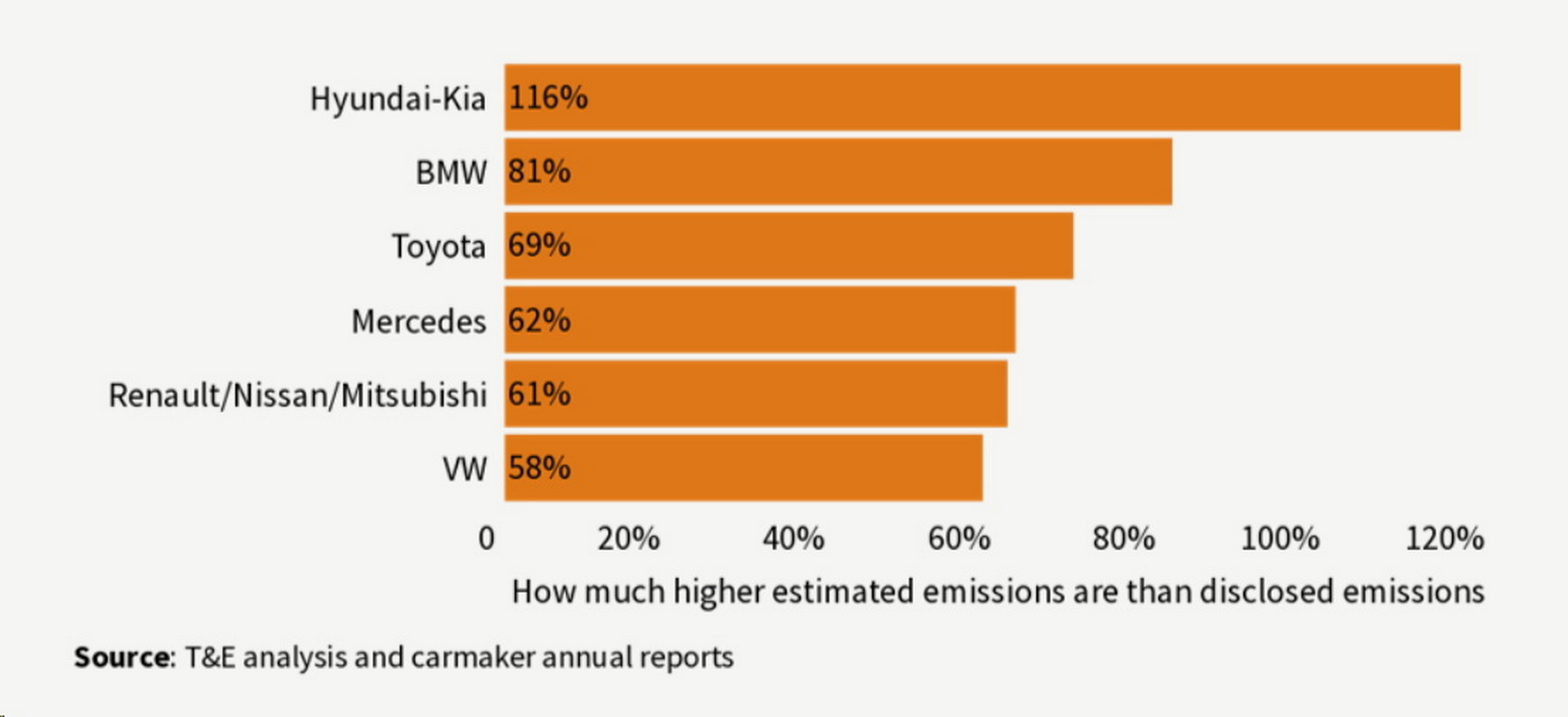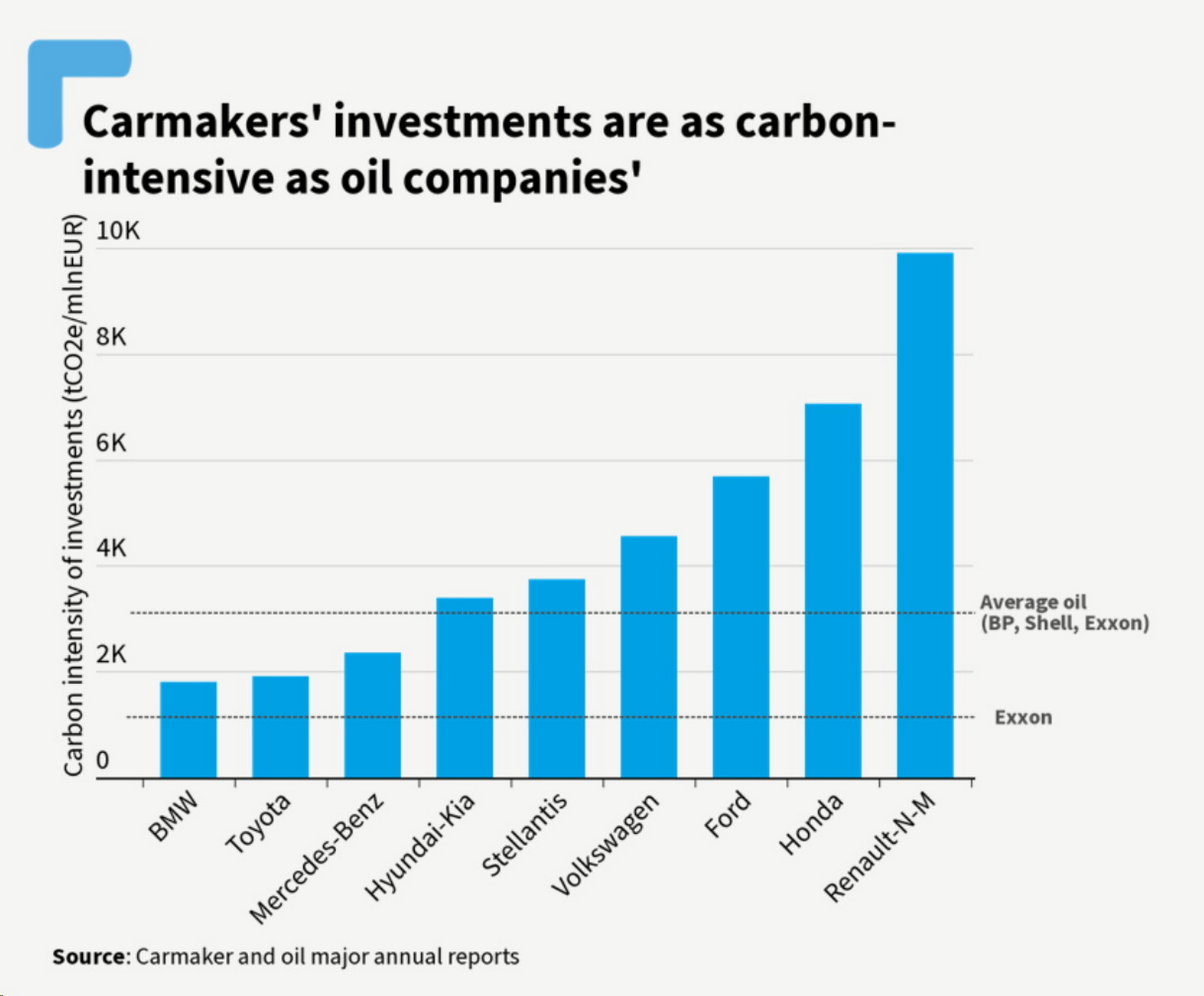The automotive industry’s global emissions are, on average, 50 percent higher than what they report, according to a new study from the environmental NGO Transport & Environment.
Unlike in other industries, where the bulk of an item’s emissions are created in the making of the product, automakers’ products continue to pollute over their lifetime. Indeed, nearly all of a vehicle’s emissions are currently created during its use. With new financial disclosure rules coming to the EU in 2023, automakers will soon be required to more accurately disclose the lifetime emissions of their products, which could come as a shock to investors and onlookers.
Automakers base their lifetime emissions estimates on a number of factors such as average vehicle size, where they are driven, and lifespan. Transport & Environment claims, though, that automakers use selective data to make emissions seem smaller than they really are. Toyota, for instance, bases the average emissions of its vehicles on a lifetime of just 100,000 km (62,137 miles), per T&E.
Read Also: Dutch Students Create Concept Car That Actually Sucks Up CO2 As It Drives
And Toyota isn’t unique. Per the NGO’s analysis, its lifetime emissions are likely 69 percent higher than current reporting, but BMW‘s are likely 81 percent higher, and Hyundai-Kia‘s may be as high as much as 116 percent higher than the company reports.
“For green investing to be effective, we need accurate data,” said Luca Bonaccorsi, the director of sustainable finance at T&E. “Carmakers are trying to pull the wool over investors eyes by underreporting the lifetime emissions of their cars. This makes a mockery of carmakers’ green claims.”
According to the NGO’s corrected estimates, automakers pollute nearly as much as oil companies, per euro invested in them. At current market prices, oil giants emit 5,000 tonnes of CO2 equivalent per €1 million ($962,275 USD at current exchange rates) invested on average. Automakers, meanwhile, emit 4,500 tonnes of CO2 equivalent per €1 million invested.
But that’s just an average. Some automakers actually emit significantly more tonnes of CO2 than the oil giants. The Renault Nissan Mitsubishi alliance, for instance, emits nearly 10,000 tCO2e per million euros, and Honda, Ford, VW, Stellantis, and Hyundai all emit more than the average of BP, Shell, and Exxon.
That’s a problem for automakers who want to remain viable for those interested in ethical investing. According to Morningstar, an American financial firm, 50 percent of all new financial products could fall under the environment, social, and governance (ESG) category by the end of this year.
“According to official disclosures, a euro invested in a car company finances virtually the same amount of carbon as a euro in an oil company,” said Bonaccrosi. “This should be a wake-up call for the financial industry. Asset managers wanting to avoid a ticking carbon bomb will have to start ditching carmakers that continue to sell polluting cars.”






